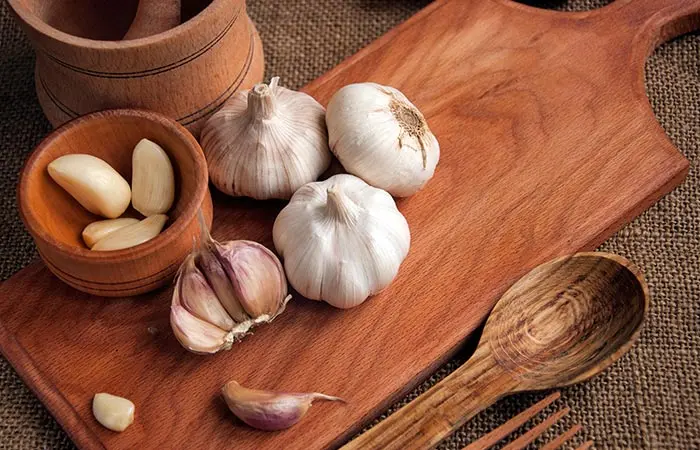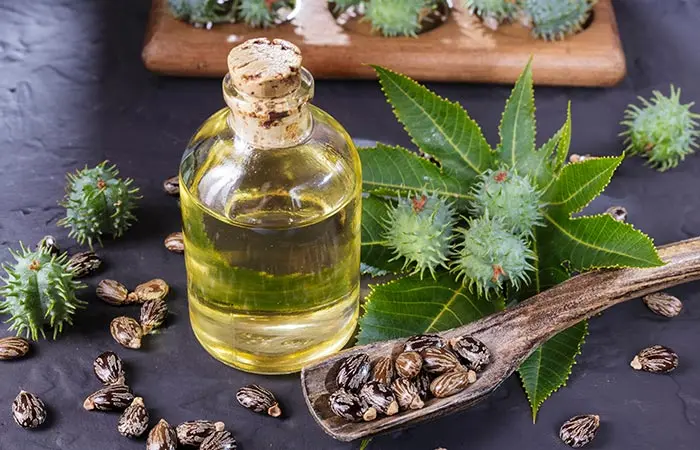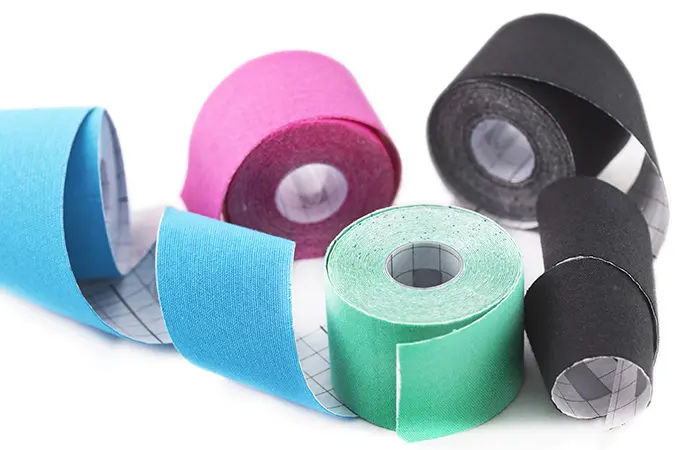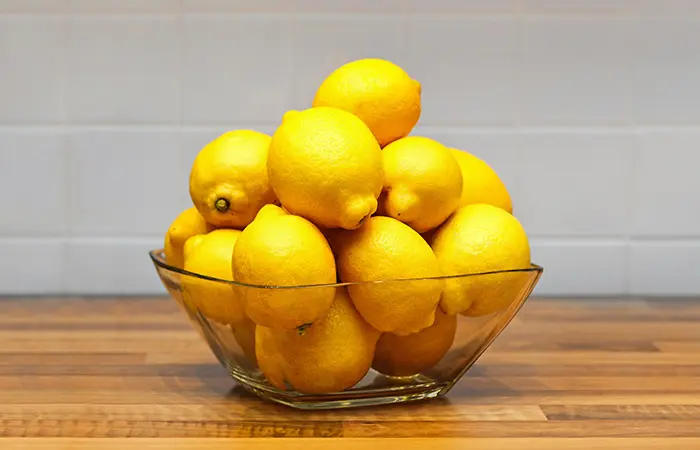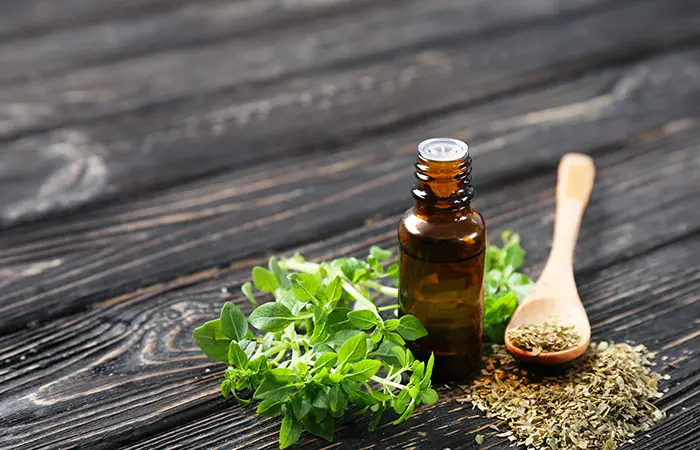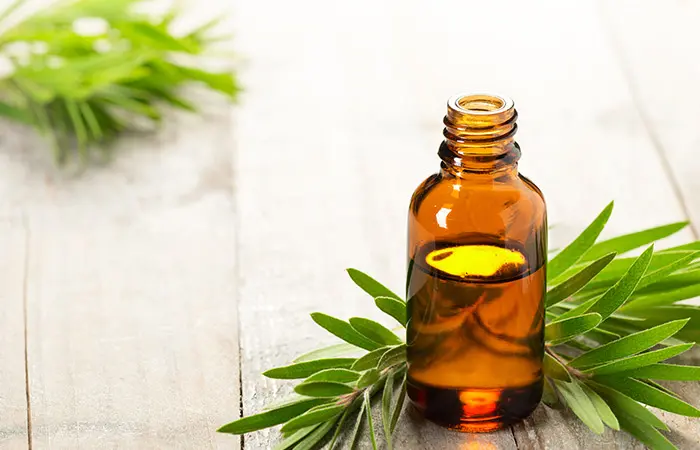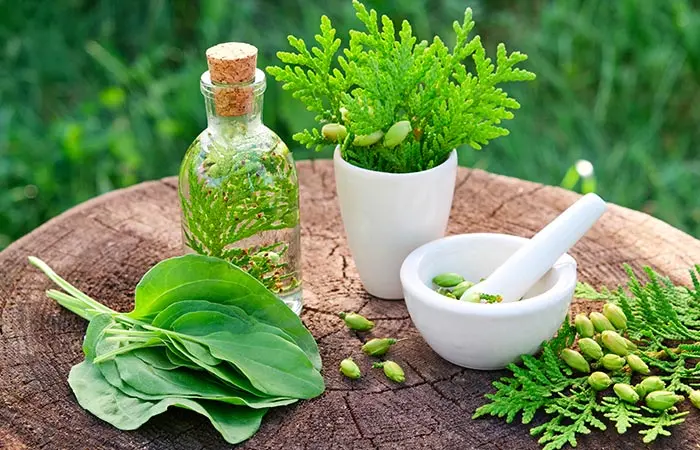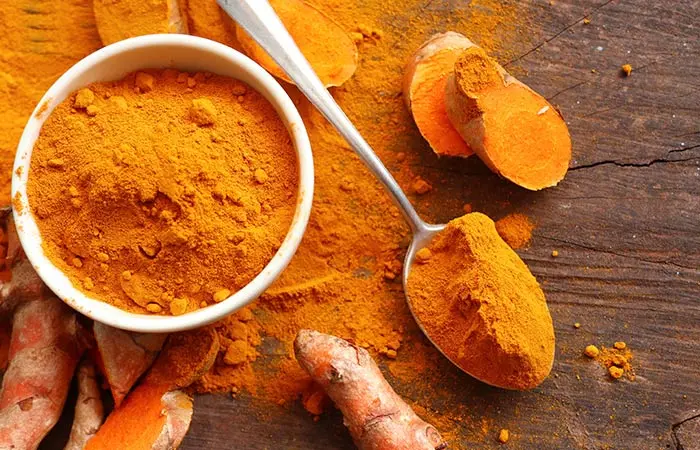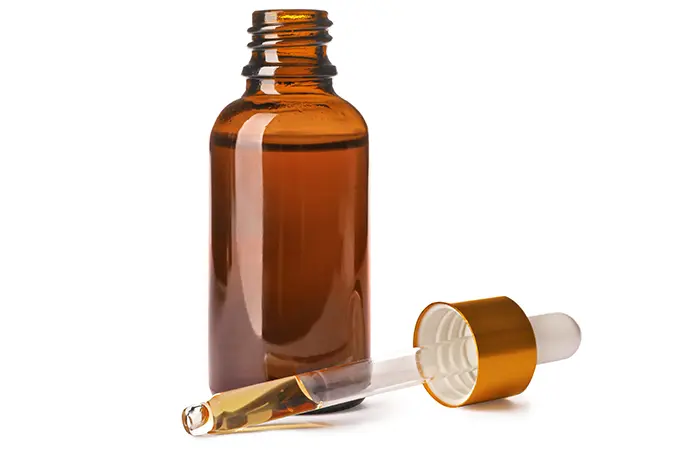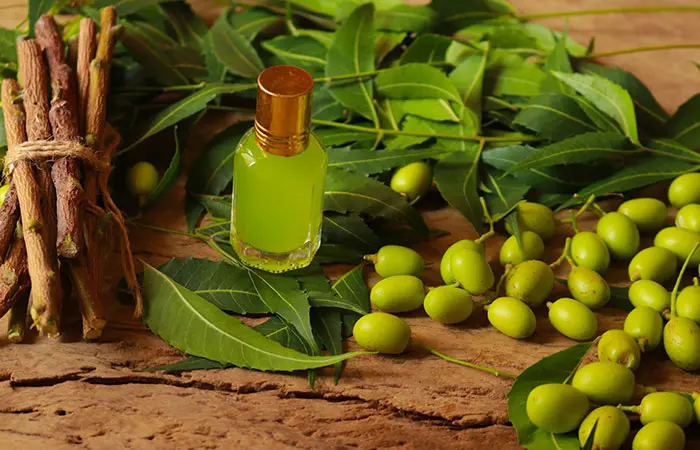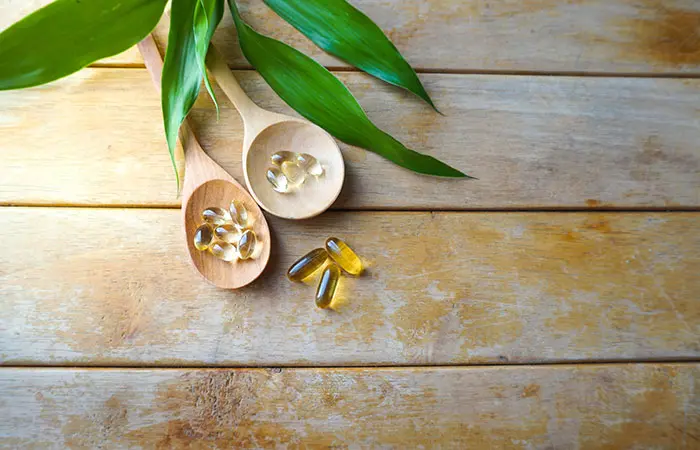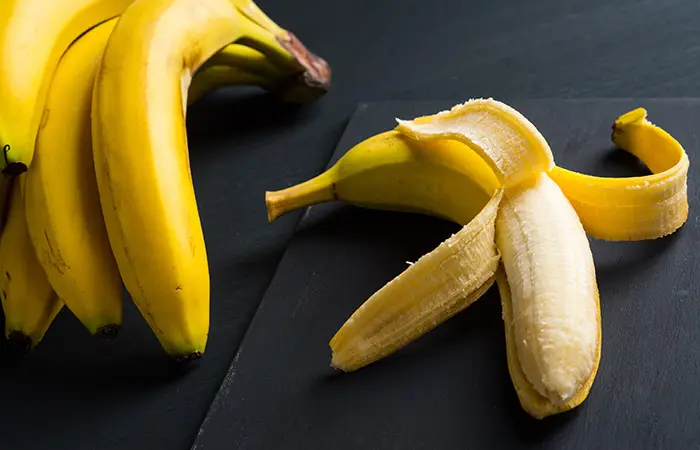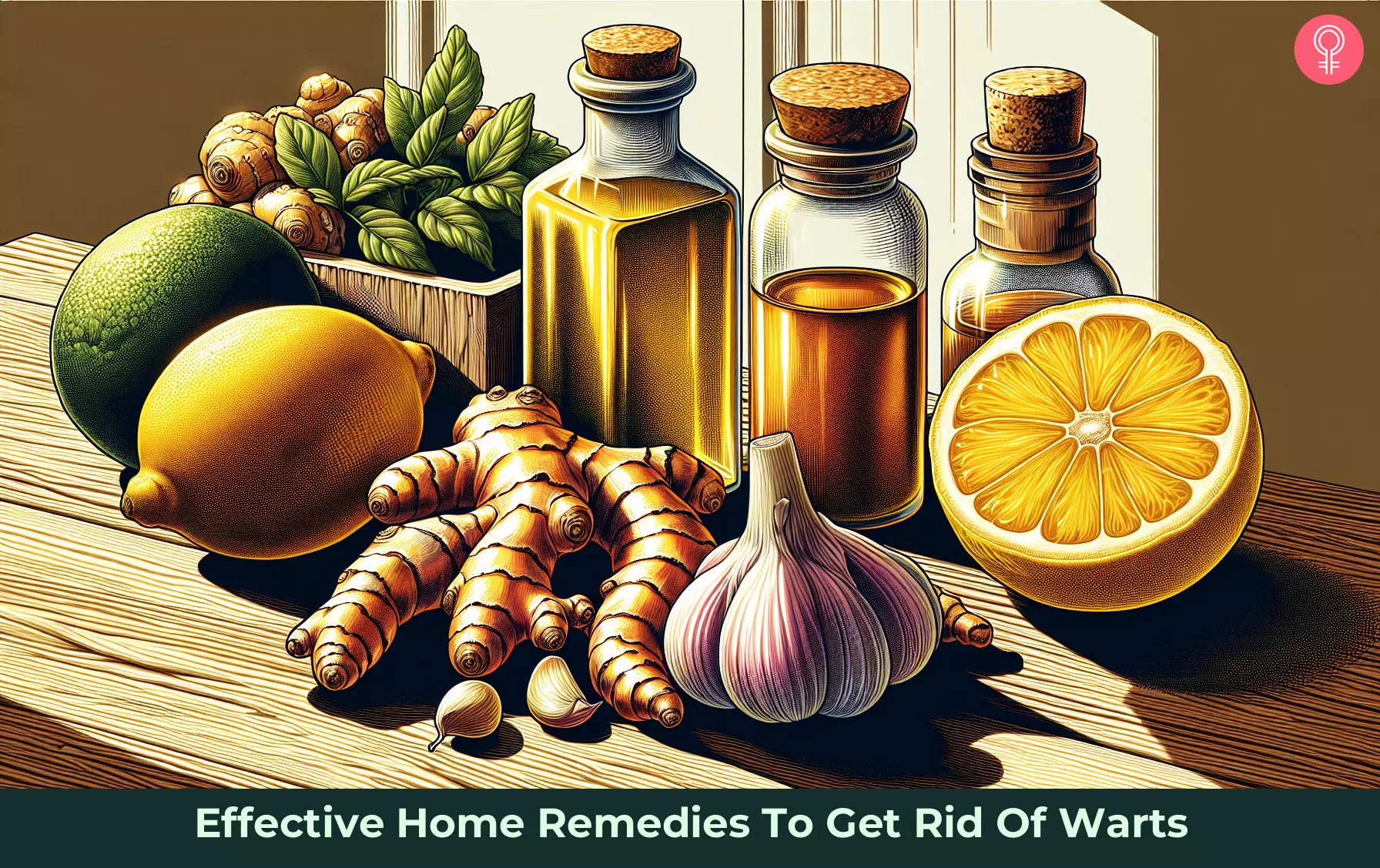Warts can appear on any part of your body, including your face, arms, legs, armpits, and even eyelids. They may alter your appearance and can affect your self-confidence and self-esteem. Also, getting rid of warts is not so easy unless you use some medications religiously for extended periods. However, the natural remedies listed here can help reduce the itch, discomfort, and embarrassment to a certain extent. Read on to try a few and see the difference for yourself.
What Are Warts?
Warts are small, bumpy outgrowths on the surface of your skin. They are caused by human papillomavirus (HPV). They can be painful, benign, and usually rough to the touch. Warts can be of a color close to your skin tone. They can occur on your face, neck, and limbs. Warts vary depending on the part of the body they appear on and their appearance. The types of warts are discussed below.
What Are The Types Of Warts?
Common Warts (Verruca vulgaris): These warts usually appear on your fingers and toes. Common warts have a rough texture and are rounded at the top with a grayish tinge. Plantar Warts: If you have a wart on the soles of your feet, you have a plantar wart or mosaic wart. What makes these warts different is that they grow into your skin. These warts can look like a hole in your foot surrounded by a layer of hard skin and can hurt when you walk. Flat Warts: If you have a wart on your face or arms, it is probably a flat wart. These warts are not easy to notice and are a lot smaller. Flat warts have a flatter appearance and may look pink or yellow. Filiform Warts: Sometimes, warts can grow around your mouth, nose, or near your neck. These warts look like a flap of skin and usually are of the same color as that of your skin. Periungual Warts: Warts that grow under your fingernails and toenails are called periungual warts and can be quite painful. Periungual warts can affect nail growth. Genital Warts: Warts that are transferred sexually are called genital warts. These warts appear as fleshy growths from the moist tissues of the genitals in both women and men.
Read on to find out where you are most likely to observe the occurrence of warts.
Where Can You Get A Wart?
Warts can appear on any part of your body. Warts can appear on your face, neck, hands, legs, and even under the fingernails and toenails . Sometimes, you may see warts around your genitals and inner thighs. We will explore the cause of warts in the next section.
What Causes Warts?
Warts are a viral infection caused by the human papillomavirus (HPV). Some strains of the virus can be contracted via sexual contact . According to the World Health Organization’s estimation in 2017, the global prevalence of HPV among women was 11.7%. Sub-Saharan Africa has the highest prevalence rate (24%), followed by Latin America and the Caribbean (16.1%). Worldwide, men have a high prevalence of HPV (21%) than women. In most cases, however, the virus spreads through physical contact and sharing of objects, such as towels. The virus gets into your body through a break in the skin surface, hangnaili A tiny, torn piece of skin hanging next to fingernails or toenails due to ingrown nails, dry skin, or nail biting. , or an open wound. Biting your nails can also cause warts to spread on your hands and nails. It is interesting to note that every individual’s immune system responds to HPV differently. This means that not everyone who comes in contact with HPV develops warts (1). Let us now understand how to determine if you have warts.
What Are The Symptoms Of Warts?
The signs and symptoms of common warts include:
Appearance of small, rough bumps They could be of the same color as your skin or darker. Rough texture Presence of black spots on the wart, which are clotted blood vessels
Warts are contagious. Although they can disappear on their own, the process may take several weeks or months or even years. If you want a faster solution or notice bleeding or pus, visit your doctor immediately.
When To See Your Doctor
Dermatologists usually suggest OTC medication for common warts. In case the wart does not go away after treatment, you will have to seek immediate medical help. Seek medical intervention if the wart bleeds or if pus drains out of it. At this stage, your dermatologist will use a stronger treatment technique to facilitate the removal of the wart. Another point to note is that all warts are possibly ‘mother’ warts. This means that they can give rise to more warts. Therefore, it is necessary that you get rid of the wart as soon as you can. Now that we have discussed all these points, it is time that we find out how you can deal with warts using simple home remedies. Read on to learn more. Note: Do not try these remedies for warts on your face or genitals. In such cases, consult a doctor. Also, though there is little or no scientific evidence to back these remedies, anecdotal evidence suggests they are effective in removing warts.
Home Remedies To Get Rid Of Warts
1. Garlic
Garlic contains compounds that exhibit antiviral properties and inhibit the proliferation of virally infected cells (2). This may help in treating the viral infection that causes warts. You Will Need
1-2 crushed cloves of garlic
What You Have To Do How Often You Should Do This Do this once daily for 2-3 weeks. A sustainable life blogger from Canberra talks about garlic being her go-to remedy for warts: “In the last couple of years I have used garlic to encourage a couple of warts to make a quicker exit. And when I say quicker, I mean in under a week (i).”
2. Castor Oil
The ricinoleic acid in castor oil exhibits analgesic properties (3). These properties may help reduce the pain caused by the wart. You Will Need
1 teaspoon of castor oil 2-3 drops of carrier oil
What You Have To Do How Often You Should Do This You can repeat this remedy 2 times daily.
3. Duct Tape
Duct tape is a medical adhesive tape that can help in removing warts. Research shows that duct tape method can be more effective than freezing the wart in cryotherapyi A process of cold therapy using extremely low temperatures to freeze and remove abnormal tissue and is used to treat skin conditions. in removing warts (4). You Will Need
1 roll of duct tape A pumice stone
What You Have To Do How Often You Should Do This Repeat this method every 3-5 days until the wart falls off on its own. Caution: If you have sensitive skin, you must be careful in using the adhesive tape as it may cause skin irritation.
4. Lemon
Citric acid is one of the main bioactive compounds of lemon juice. Citric acid possesses antimicrobial and anti-inflammatory properties that can help prevent further infection of the wart and reduce inflammation (if any) around the affected area (5). You Will Need
1 lemon A few drops of water
What You Have To Do How Often You Should Do This Repeat this method once daily for about 3-4 weeks.
5. Oregano Oil
Studies show that oregano oil contains a compound called carvacroli An aromatic chemical compound of many aromatic plants and used in the essential oils of oregano, thyme, and pepperwort. that possesses antibacterial properties (6), (7). This may help in fighting the infection caused by a wart. You Will Need
A sterile cotton ball or gauze 2-3 drops of oregano oil
What You Have To Do How Often You Should Do This
Do this 3-4 times daily for a few weeks.
6. Tea Tree Oil
Using tea tree oil for warts is a very common practice among people who prefer natural remedies. It is a popular essential oil known for its potent antimicrobial properties (8). It can be used topically at the site of the wart to help prevent further infection. You Will Need
A sterile cotton ball or gauze 2-3 drops of tea tree oil
What You Have To Do How Often You Should Do This Repeat 3-4 times daily until you see visible change at the site of the wart.
7. Thuja Oil
Thuja occidentalis or American arborvitae is widely used in homeopathy to treat warts. It exhibits antiviral properties that can help in treating the virus that is causing warts (9). You Will Need
2-3 drops of thuja oil A clean cotton ball
What You Have To Do How Often You Should Do This You can repeat this remedy 1-2 times daily.
8. Turmeric
Turmeric contains curcumin, which has antimicrobial and antiviral properties that can help in clearing HPV infection (10). You Will Need
1 teaspoon turmeric powder A few drops of carrier oil
What You Have To Do How Often You Should Do This Repeat this procedure every 3-6 days until the wart falls off.
9. Beetle Juice
Beetle juice or cantharidin is a tried and tested remedy for treating warts. It causes a blister to form underneath the surface of the wart, slowly pushing it until it falls off (10). You Will Need
A bandage 2-3 drops of cantharidin
What You Have To Do How Often You Should Do This Repeat this procedure every 3-6 days until the wart falls off. Note: You may experience pain and tenderness in the affected site after using this remedy.
10. Neem Oil
Neem is a popularly used home remedy for viral infections. It possesses antiviral properties that make it suitable to treat the viral infection that causes warts (11). You Will Need
2-3 drops of neem oil
What You Have To Do How Often You Should Do This
Do this daily.
11. Vitamin A
One effective and non-invasive method to treat warts is to use vitamin A topically. Topical application of vitamin A can help inhibit the replication of HPV replication by promoting the growth of skin tissue cells (12). However, more studies are needed to establish its effectiveness in treating common warts.
12. Ripe Banana Peel
Several studies have shown that banana peels are rich in phenolic compounds (13). These bioactive compounds exhibit antiviral and antibacterial properties that can help in treating warts (14). You Will Need
Peel of a ripe banana Medical tape
What You Have To Do How Often You Should Do This Repeat this process by changing the peel once a day for about two weeks. Try any of these home remedies to get rid of warts. If you want to remove any wart medically, you can use over-the-counter products, especially those that contain salicylic acid. There are also many medical therapies, such as laser therapy, electrocautery, immunotherapy, as well as surgery. Below are a few tips to prevent the recurrence of warts.
How Can I Prevent The Occurrence Of Warts?
You cannot prevent warts, but you can always follow precautionary measures to reduce the chances of getting warts. Here are a few tips: It is advised to consult a healthcare professional when the aforementioned tips do not show results. They may suggest the following treatment options to manage warts.
Warts Treatment
Treatment strategies for warts include a spectrum of options according to the nature and severity of the condition. Topical agents are often the initial choice. Salicylic acid is a common over-the-counter remedy for common warts as it boasts cure rates of 50-70% (15). More resistant cases may need stronger treatments like cryotherapy, podophyllin, retinoic acid, interferon, topical 5-fluorouracil, and imiquimod. Cidofovir, originally designed for CMV infections, has shown promise in treating stubborn warts, particularly in those with recurrent outbreaks (15). Additionally, your doctor may explore systemic treatments like cimetidine and retinoids to treat warts. Surgical options like laser therapy, electrodesiccation, and excision are reserved for complex or recurrent cases (15). Can normal vinegar remove warts? Dr. Anju Methil, MBBS, DVD, MD (Dermatology), says, “There may be some anecdotal evidence that vinegar works to remove warts, but scientific research has not yielded conclusive proof of its efficacy. The acids in vinegar cause redness and pain in healthy skin and will slow down the healing process.” Can aloe vera remove warts? Dr. Anju says, “Aloe vera has the effect of anti-inflammatory and wound healing. However, as scientific studies have not shown strong evidence for this, they are not seriously considered.” Are warts contagious? Yes. Research shows that warts can spread easily by skin-to-skin contact. However, not all strains of HPV are contagious, and not everyone reacts to HPV in the same way. Can warts spread from one part of my body to another? Yes, warts can spread from one part of your body to another. Do not touch your warts repeatedly and wash your hands thoroughly after tending to warts. Why do some warts have black dots in them? The black specks on warts are blood vessels that supply them with oxygen. How long do warts last untreated? If left untreated, warts can last for a year or two. While your body fights off the viral infection that causes warts, you must remember not to pick at them as it can spread to other parts of your body. How do I know when to stop treating a wart? When the wart falls off, and the skin surface resembles the surrounding skin texture and appearance, you can stop the treatment. What happens if a wart bleeds? If a wart bleeds or if pus drains out of it, you must seek immediate medical help. Does clear nail polish get rid of warts? Anecdotal evidence claim that clear nail polish may cut the air supply to warts, eventually removing them. However, this isn’t a scientifically proven method. Can a wart turn cancerous? No, warts never turn cancerous. However, abnormal-looking skin moles may sometimes indicate cancer. Therefore, it is important to know if you have warts or moles. Is it OK to pick a wart? No, picking a wart may lead to injury and bleeding. Can you put toothpaste on a wart? Some people apply toothpaste on warts to reduce their size. However, it is not a safe and effective way to remove warts.
Illustration: Effective Home Remedies To Get Rid Of Warts
Learn how to get rid of warts easily! Discover simple and effective treatments to help you treat warts by clicking on the video below.
